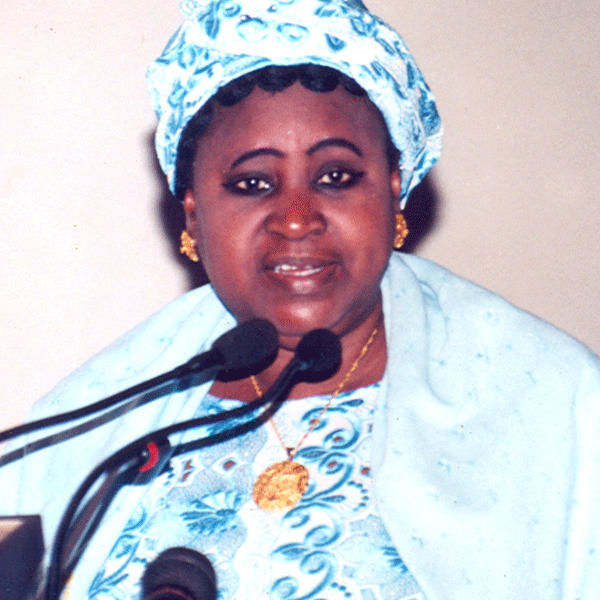
After a series of technical and legal reviews and consultations, the long-awaited Women's Bill 2010 was Tuesday passed by members of the National Assembly.
The bill was tabled before deputies by the Vice-President and Minister of Women's Affairs, Ajaratou Dr. Isatou Njie-Saidy, and covers a wide range of issues relating to the rights of women and girls, as well as other human rights matters.
Divided into twelve parts, the bill seeks to establish a legal framework and related institutions in pursuit of promoting equality for women in society, and removing all forms of discrimination against women and girls.
The bill touched, among others, specific rights of women, which require protection and are enforceable in a court of law, in addition to those rights protected under the Constitution.
It provides for government's commitment to eliminate all forms of discrimination and violence against women, and to ensure the full and equal participation of women.
The bill also provides for temporary special measures in favour of women. This is aimed at accelerating de facto equality and equal opportunities between men and women, and shall be discontinued once the objective is met.
It further prohibits discrimination against women in employment. It provides for equal opportunities in securing employment, freedom to choose a profession and work, equal remuneration, treatment and benefits, protection of health and safety of women at work.
In proposing the bill before deputies, Vice-President Njie-Saidy described it as relevant and timely, considering the fact that from time immemorial, some Gambian women and girls have been victims, and have suffered innumerable forms of marginalisation and abuse in society.
She noted that these unpleasant situations, in which some women and girls are subjected to often, disrupts their daily lives and equal opportunities to progress, such as lack of shelter, poor clothing and malnutrition, among others, and thereby exacerbates poverty.
"Some cases in point are domestic violence, which includes physical, psychological and economic harm, including the threat to take such acts, or to undertake the imposition of arbitrary restrictions on or deprivation of fundamental freedoms of women and girls, and any distinction, exclusion or restriction or any differential treatment based on sex," she said.
The Minister of Women's Affairs added that the socio-economic upliftment of women, therefore, has negatively and significantly been affected for more than a century.
She also stated that gender-based violence is not only a human rights issue, but equally a development and health-related issue.
According to Vice-President Njie-Saidy, the government of The Gambia is aware of the need to protect and safeguard the rights of its citizens, and has entrenched these rights and fundamental freedoms in the 1997 Constitution of the Second Republic.
She added that the ratification of international treaties does not automatically make them national laws.
Therefore, she went on, the Ministry of Women's Affairs has come up with this bill that attempts to domesticate relevant women-related conventions and treaties into our national laws.
She further stated that the effective execution of the bill requires the commitment of all stakeholders, particularly the Judiciary, National Assembly members, Regional Governors, security personnel, chiefs, Alkalolu, religious and opinion leaders, civil society, men and women of all walks of life.
Seconding the motion, Hon. Haddy Nyang-Jagne, member for Jeshwang, urged her colleagues to support and adopt the bill in the interest of the nation.
"Article (1) of the Universal Declaration of Human Rights proclaims that all human beings are born free and equal in dignity and rights, and they are endowed with reasoning and consent and to act towards one another in the spirit of brotherhood."
According to the MP, the 1997 Constitution of the Second Republic, which is the basic law of the land, stated that the fundamental rights and freedom enshrined in the Constitution will ensure full respect for and observance of the human rights of people, at all times, without discrimination based on ethnicity, gender, language or religion.
She further quoted Section 28 (1) and (2) of the Constitution of The Gambia, which she said, deals with equity for everything, including opportunities to political, economic and social activities.
Hon. Haddy Nyang-Jagne reminded her colleagues that The Gambia has placed itself under an obligation to honour these human rights issues, including other documents incorporated in the Women's Bill.
Read Other Articles In Article (Archive)
Detention without trial must stop!
Dec 19, 2012, 8:47 AM



